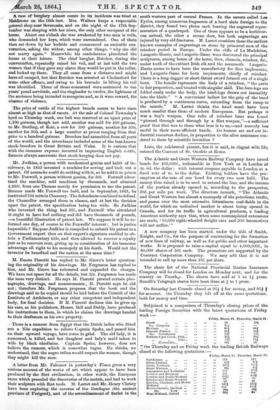. Mr. Judkins, a person with mechanical genius and habit
of in- solvency, in 1852 invented a machine for sewing and took out a patent. Of course he could do nothing with it, so he sold it in prison to Mr. Foxwell, a person without genius, for 50/. Foxwell adver- tised the machine, sold machines by thousands, and obtained 4,250/. from one Thomas merely for permission to use the patent. Success made Mr. Foxwell too bold, and in September, 1863, he instituted 134 suitsin Chancery. The defendants combined todefend, the Chancellor arranged them in classes, and at last the decision upset the patent, the specification being too wide. So Judkins who invented the thing had 50/., and Foxwell who circulated it ought to have had nothing and did have thousands of pounds, —a beautiful illustration of patent law. We suppose it will be re- formed one day, of course in the Foxwells' interest ; but is justice impossible ? Suppose Judkins is compelled to submit his patent to a Government expert, then on that expert's signature enabled to ob- tain a Parliamentary title, and then allowed to recover a royalty just as be recovers rent, giving up in consideration of his immense advantage all right to his monopoly at his death. Would not the inventor be benefited and the nation at the same time ?






























 Previous page
Previous page